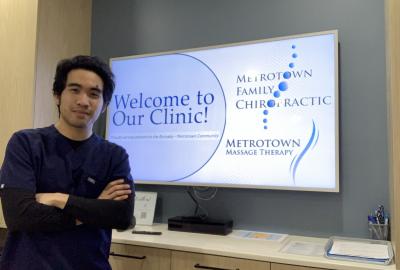
Imagine you’re going on a blind date. You walk into the restaurant nervously. Moments later you realize the attractive person sitting at the table is your date. You’re excited to get to know this person… but, oh no. All they do is talk about themselves! They don’t even make eye contact because they’re too busy showing you all the awards they’ve won and the projects they’re working on. Even worse… they use all these technical words from their job. You glance at the clock, wondering how you’ll get through this!
This type of scenario is common when it comes to writing cover letters. The applicant provides a one-sided view only and doesn’t consider the employer’s perspective.
Learning to write a cover letter that feels like a great conversation takes practice, just like dating does. When there are sparks, it often leads to a next date (the interview!) and a next date (a job offer!) and…you get the picture. In this blog post, I will guide you on how to do both - how to talk about your accomplishments and how to engage the employer in what feels like a conversation about how you can be an asset to their company.
1. Recall the Fundamental Elements of All Good Stories: Beginning, Middle, End
Lightly introduce yourself and then bring the subject back to the other person (the position). Say something interesting (about the company) to show your interest and some of your knowledge. Go a little deeper with sharing who you are and why you want to be a part of the team, and share a short story about a particular initiative you took and explain how this is valuable to the company. Towards the end of the conversation, briefly summarize yourself in a memorable way, while showing interest in wanting this conversation to continue further.
2. Use Language Familiar to Your Reader
Have a captivating introduction and match your language with theirs (refer to their job description, their website). No matter how charming you are and how great your qualifications are, if the reader can’t understand what you’re saying, you can’t get to know each other.
3. Stick to the Point
According to Undercover Recruiter, the average time spent looking at a cover letter is 5-7 seconds. This is your first impression and it counts. The reader wants to know more about your personality and skillset, quickly.
4. You Don’t Need to Be the Center of Attention
This is a common phenomenon in cover letters. Draw the reader in by saying something you know about them for once!
5. Be Genuinely Interested in the Company
Mention a specific award the company won and compliment them on specifically what they’ve done that got them the award. The content of your cover letter should flow naturally, as it would in a real conversation.
6. Be Real
Hiring managers can sense real passion about what you’re saying, even on paper. After reading your cover letter, if they can paint a picture of who you are in their minds, this a good clue that you’ve done a good job of being yourself. Share your passions and your motivations and have a genuine conversation with the reader.
You look from the clock back to your nervous date, still busy talking. You decide to put the person at ease using your great conversation skills and soon you’re planning the next date together…
Don’t do what you wouldn’t want to happen on a blind date - on your cover letter!















